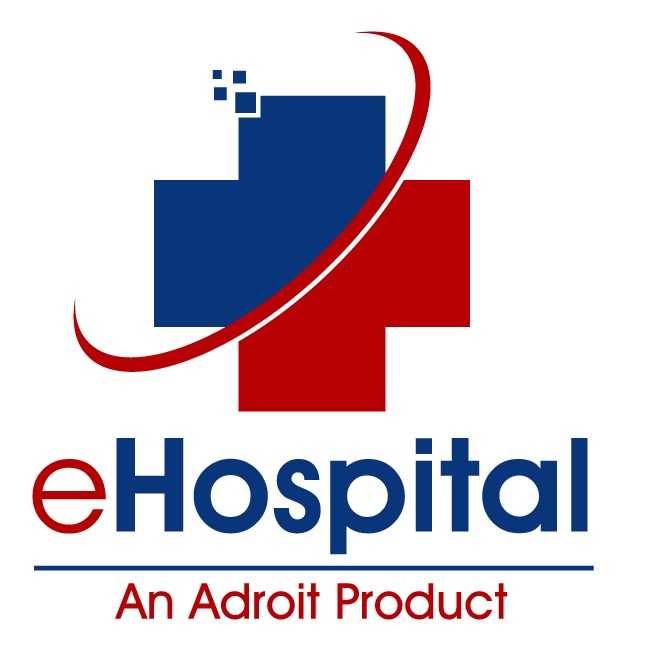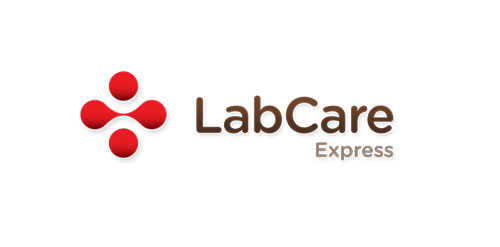Description

Attune LabKernel

eHospital
Comprehensive Overview: Attune LabKernel vs eHospital
Attune LabKernel and eHospital are healthcare-focused software solutions designed to streamline operations and improve efficiency in medical facilities. Here's a comprehensive overview of each:
a) Primary Functions and Target Markets
Attune LabKernel:
-
Primary Functions:
- Laboratory Information Management: LabKernel is primarily designed to manage and automate laboratory operations. It handles sample tracking, results management, reporting, billing, and inventory management.
- Data Integration and Management: Offers integration capabilities with other healthcare systems like Hospital Information Systems (HIS), Electronic Medical Records (EMR), and more.
- Quality Control: Provides features for maintaining and monitoring quality assurance processes.
- Compliance and Reporting: Supports compliance with various regulatory standards and simplifies reporting for audits and management.
-
Target Markets:
- Medical Laboratories
- Hospital Labs
- Diagnostic Centers
- Research Institutions
eHospital:
-
Primary Functions:
- Comprehensive Hospital Management: eHospital is a more extensive solution designed to manage the different functions of a hospital. It includes modules for patient registration, appointment scheduling, billing, EMR, pharmacy, radiology, and more.
- Patient Care and Management: Enhances patient management from admission to discharge with attention to patient history, treatment plans, and follow-ups.
- Administrative Workflow Automation: Streamlines administrative tasks such as HR, payroll, inventory, financial accounting, and reporting.
- Operational Efficiency: Supports operational enhancements by standardizing processes across departments.
-
Target Markets:
- Hospitals
- Nursing Homes
- Clinics
- Healthcare Enterprises
b) Market Share and User Base
While specific statistics on market share and user base can be proprietary and variable, generally:
-
Attune LabKernel:
- It is widely used in laboratories and diagnostic centers due to its specialized focus.
- Its market share is strong within the diagnostic sector and continues to grow as laboratories digitize their operations.
-
eHospital:
- It has a broader reach as it targets entire hospital systems, making its market share more substantial in the hospital management sector.
- Its user base is diverse, ranging from small clinics to large multi-specialty hospitals.
Both products are positioned well within their niches, but eHospital tends to reach a wider audience due to its comprehensive nature.
c) Key Differentiating Factors
Attune LabKernel:
- Specialization: Specific to laboratory operations, offering deep and focused features tailored to lab-specific workflows.
- Laboratory Efficiency: Highly efficient in managing large volumes of sample data and supporting laboratory-specific compliance requirements.
- Integration: Designed to integrate seamlessly with other lab devices and systems for streamlined data flow.
eHospital:
- Comprehensiveness: Offers a broader suite of applications covering all aspects of hospital management beyond just laboratory operations.
- Patient-Centric Approach: Includes modules specifically designed to improve the patient experience from the first point of contact.
- Scalability: Can be scaled to manage multiple departments and large facilities, making it suitable for a wider scope within the healthcare sector.
In conclusion, while both products serve the healthcare industry, they cater to different needs and scales. LabKernel is niche and specialized, perfect for laboratories, while eHospital provides a wide-reaching solution fit for large healthcare institutions aiming for comprehensive operational management.
Contact Info

Year founded :
Not Available
Not Available
Not Available
Not Available
Not Available

Year founded :
Not Available
Not Available
Not Available
India
http://www.linkedin.com/company/ehospital
Feature Similarity Breakdown: Attune LabKernel, eHospital
As of the latest information available, both Attune LabKernel and eHospital are healthcare software solutions designed to streamline operations within medical facilities. While specific features may vary depending on the version and customization of these products, a general comparison can be conducted based on common use cases and industry practices. Here’s a structured breakdown:
a) Core Features in Common:
-
Patient Management System: Both systems usually include patient admission, registration, and discharge functionalities. They manage patient demographics, medical history, and appointment scheduling.
-
Electronic Medical Records (EMR): These platforms offer EMR capabilities, allowing healthcare providers to digitalize patient records, facilitating easy access and updating of medical information.
-
Laboratory Information System (LIS): Attune LabKernel, being more lab-focused, has extensive LIS features, but eHospital also usually offers lab management functionalities that handle test requests, results entry, and reporting.
-
Billing and Invoicing: Financial management is a core aspect where both systems provide modules for billing, invoicing, and insurance claims processing, ensuring a streamlined financial workflow.
-
Inventory Management: To varying degrees, both systems support inventory and supplies management to track and control usage and stock levels of medical supplies and pharmaceuticals.
b) User Interface Comparison:
-
Attune LabKernel: Typically, it sports a lab-centric design tailored to streamline laboratory workflows with greater ease. The UI might focus on providing quick access to laboratory data, analytics, and reporting tools relevant to a lab environment.
-
eHospital: The design is more generalized for hospital management, covering broader modules including inpatient and outpatient management. The UI will likely cater to a wider range of medical professionals, offering customizable dashboards that include various hospital operations beyond laboratory settings.
Both products aim for intuitive, user-friendly interfaces with an emphasis on minimizing the learning curve for healthcare professionals. They might employ clean, modern designs with graphical data representations, but specific aesthetics and usability can differ based on vendor implementation and client requirements.
c) Unique Features:
-
Attune LabKernel: Known for its strong laboratory management features, LabKernel may include advanced analytics and integration capabilities geared specifically for lab operations. It might offer better customization for lab workflows and sophisticated data handling tools.
-
eHospital: This platform often includes broader hospital management features beyond what’s offered by LabKernel, such as modules for operation theater management, nursing, dietary, and housekeeping logistics. Additionally, eHospital might integrate more extensively with other hospital departments and external systems, providing a more holistic approach to hospital management.
In choosing between these solutions or integrating them, healthcare facilities generally consider the specific needs of their operations, the required level of customization, and the integration capabilities with other existing systems.
Features

Not Available

Not Available
Best Fit Use Cases: Attune LabKernel, eHospital
Attune LabKernel:
a) Best Fit Use Cases for Attune LabKernel:
-
Diagnostic Laboratories: Attune LabKernel is ideal for standalone or chain diagnostic laboratories that seek to streamline and automate their lab operations. It is best suited for businesses that require detailed and accurate test result management.
-
Research Institutions: Research facilities that process a significant volume of lab work can benefit from LabKernel's ability to handle complex testing protocols and large datasets, enhancing efficiency in research studies.
-
Hospital Laboratories: Hospitals with in-house laboratories that need integrated solutions for managing patient data, test results, and lab workflows will find LabKernel advantageous for improving turnaround times and maintaining quality control.
-
Pathology Labs: Pathology labs that require detailed sample tracking, from collection to report generation, can leverage LabKernel’s features for comprehensive pathology information management.
b) Preferred Scenarios for eHospital:
-
Hospitals and Clinics: eHospital is tailored for medium to large hospitals and clinics that need a comprehensive hospital management system. It’s an excellent fit for institutions looking to integrate various departments such as billing, patient records, scheduling, Inventory management, and pharmacy operations.
-
Healthcare Networks: Large healthcare networks or hospital chains looking for a centralized management system to oversee multiple locations benefit from eHospital's capabilities to manage diverse operations and ensure seamless communication among facilities.
-
Multispecialty Facilities: Facilities that offer multiple specialties or services, such as dental, optical, and radiology, find eHospital effective in managing different departmental needs while maintaining unified patient records.
d) Catering to Different Industry Verticals or Company Sizes:
-
Industry Verticals: Both Attune LabKernel and eHospital are versatile in catering to the healthcare sector. LabKernel specifically addresses the needs of diagnostic and research labs, while eHospital targets comprehensive healthcare management, suitable for various medical specialties and facility types.
-
Company Sizes: Attune LabKernel can be scaled for small independent labs to larger lab networks, making it adaptable to the business size. eHospital, being more feature-rich, caters better to medium-sized to large hospitals and healthcare systems that require extensive integration across multiple departments and services.
In summary, while Attune LabKernel is specialized for laboratory management across diagnostic and research applications, eHospital provides a broad, integrated management solution for entire healthcare facilities, making each product suitable for specific operational needs and organizational sizes within the healthcare industry.
Pricing

Pricing Not Available

Pricing Not Available
Metrics History
Metrics History
Comparing teamSize across companies
Conclusion & Final Verdict: Attune LabKernel vs eHospital
When evaluating Attune LabKernel and eHospital, it is important to consider the individual needs and contexts of healthcare facilities as both platforms have their own strengths and weaknesses. Here is a comprehensive analysis and conclusion:
a) Best Overall Value:
-
Attune LabKernel: This product is particularly well-suited for pathology laboratories and diagnostic centers, given its specialized features for lab management. It offers excellent integration with lab instruments and provides robust reporting and analytics capabilities. For facilities heavily focused on lab processes, LabKernel provides specialized features that may offer greater value.
-
eHospital: This is a more comprehensive hospital management system intended for general use in various hospital departments, making it a versatile choice for healthcare facilities that require an all-encompassing HIS. It includes modules for patient registration, appointment scheduling, billing, and more, delivering a holistic approach. Institutions needing extensive hospital management features beyond lab-specific tasks might find it to offer better value.
b) Pros and Cons:
-
Attune LabKernel:
- Pros:
- Highly specialized for lab workflows.
- Strong analytical tools and reporting for lab results.
- Efficient integration with lab equipment.
- Streamlined lab operations improve efficiency and accuracy.
- Cons:
- Limited when it comes to addressing non-lab-specific hospital needs.
- Might require additional systems or integration for full HIS functionality.
- Pros:
-
eHospital:
- Pros:
- Comprehensive range of hospital management features from administration to patient care.
- Modular design can be customized based on specific needs.
- Suitable for a wide variety of healthcare facilities.
- Cons:
- Not as specialized in lab management as LabKernel.
- Might require customization for specific lab needs, which could lead to additional costs and complexity.
- Pros:
c) Recommendations for Users:
-
Determine Primary Needs: If your facility primarily revolves around laboratory services and requires intensive lab management functions, Attune LabKernel might be the more appropriate choice due to its specialized capabilities. However, for a comprehensive hospital management requirement that includes a variety of operational areas, eHospital is likely the better fit.
-
Consider Integration Needs: Facilities that need a seamless connection between lab operations and broader hospital management should consider how well each system can integrate with existing or planned systems.
-
Budget and Resource Allocation: Evaluate the total cost of ownership, including software costs, implementation, training, and maintenance. Comprehensive systems like eHospital may require greater resources upfront but could offer more value in the long run for complex organizational needs.
-
User Feedback and Support: Consider feedback from existing users and seek demonstration sessions to understand the usability and customer support offered by each provider.
-
Future Scalability and Customization: Assess whether each system can scale according to future needs and how easily they can be customized to adapt to specific requirements or regulatory changes.
In conclusion, the choice between Attune LabKernel and eHospital should align with the specific operational needs, strategic objectives, and budget constraints of the healthcare facility. Attune LabKernel excels in laboratory environments, while eHospital provides a more comprehensive suite of hospital management solutions. Evaluating these factors will guide users to make an informed decision that best fits their institutional needs.
Add to compare
Add similar companies




